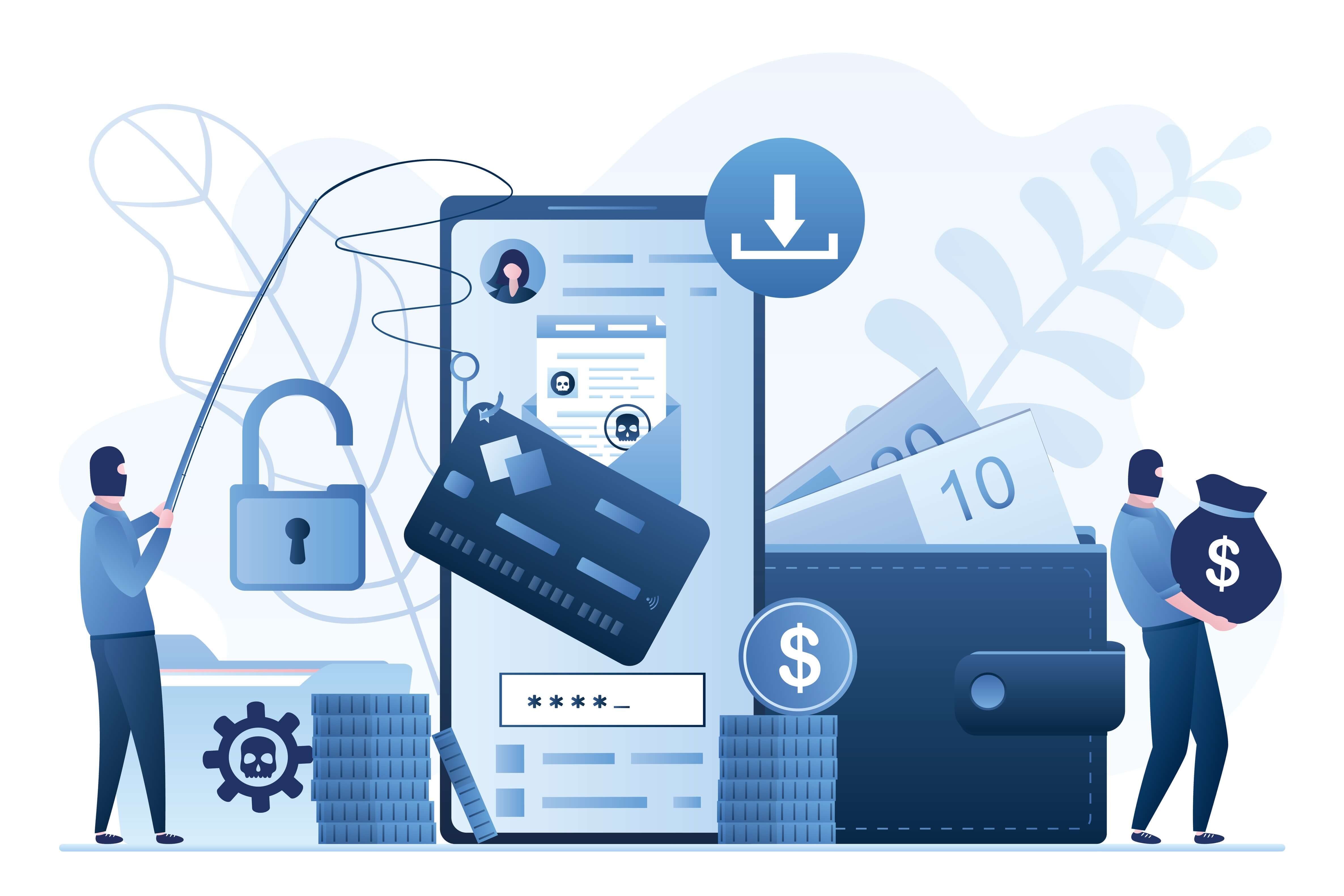BankIowa
Updated Mon March 18, 2024
Published Under: Fraud Prevention & Security

Living in today’s digital world, online scams are becoming an increasing security threat. Whether this be on your mobile phone, desktop computer, or tablet, scammers will try to steal your money and/or information. By identifying how often online scams happen, what types of online scams can occur, and how to prevent online scams, consumers can enjoy their digital lives without having to worry about a scammer hiding around the corner.
“I can’t get scammed, that rarely happens nowadays!”
Each year online scamming has grown drastically, especially with the use of email. Business email scams are increasing by 2,370% since 2015 and it is estimated that adults in the US (usually adults over the age of 60) have a 1 in 10 chance of being scammed. Since the pandemic, more people are relying on the internet for everyday use like shopping, storing information, and financial transactions, making it easier for cyber-criminals to steal or take personal information or money. Seeing these statistics may be jarring to someone who hasn’t experienced an online scam, but there are ways to identify the numerous types of scams that go on in our world today.
“I thought there was only one type of online scam!”
Scammers always find new ways to scam the consumer, through the consumers’ personal or professional life. The most common types of online scams include:
- Spear-phishing
- SMShing
- Shopping Scams
- Nigerian Scams
- Bitcoin and Cryptocurrency
- Fine Print Scams
- Fake Debt Help
- Digital Kidnapping
- Fake Antivirus Software
- Free Stuff Scam
- Work-From-Home Scams
- And More!
While this list does NOT contain every scam in the book, it does shed some light on how careful we consumers need to be when using the internet.
“I need protection from online scammers!”
There are ways that the consumer can take action (for free!) to help keep safer from online scams.
- Keep all your devices up to date
- Most system updates on mobile and desktop devices come with security software built into the operating system so when system updates are available, run them to protect your device and data
- Create different passwords for all your online accounts
- A good rule to follow for creating passwords is to make sure it’s at least eight characters long, using a mix of symbols, numbers, and letters and do not reuse the same password across multiple sites and apps
- Do not click unknown links or attachments in emails
- Malware and hacking software often comes in the form of file attachments in emails or as links to web pages tied to malicious software. Phishing emails are common and should be reported to the Federal Trade Commission. If you don’t recognize the email address or organization, report it!
- Set your social media accounts to private
- If you don’t know the person trying to connect with you, consider whether you want them to have access to your personal life.
- Have a secure internet connection
- Make sure your home and work internet have a password set for all wireless connections. Be alert to the networks you join in public settings!
Online scams can be dangerous and it’s crucial to stay informed and aware of the risks. If you do fall victim to a financial scam, report the activity to BankIowa and the authorities. By using the simple precautions listed above, you can help to avoid being scammed and your information should stay secure.

Dorothy H 7:38 AM CDT, Mon September 23, 2024Reply
This has got to be one of my worst nightmare. I tried everything I could to get my money back but despite all of my efforts I was not able to get it out. I got tired of everything and a friend of mine heard my story and introduced me to recoveryhacker101@gmailcom and they were able to get me my money. You can Google them to check them out, if you find yourself in similar situation where you can not withdraw your funds or wallet issues